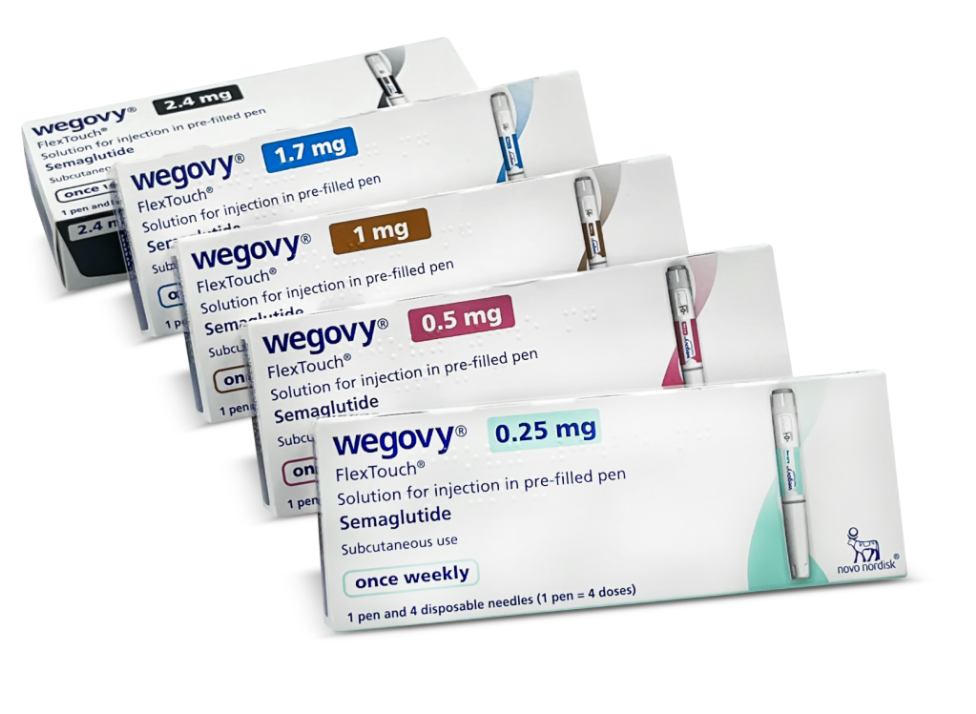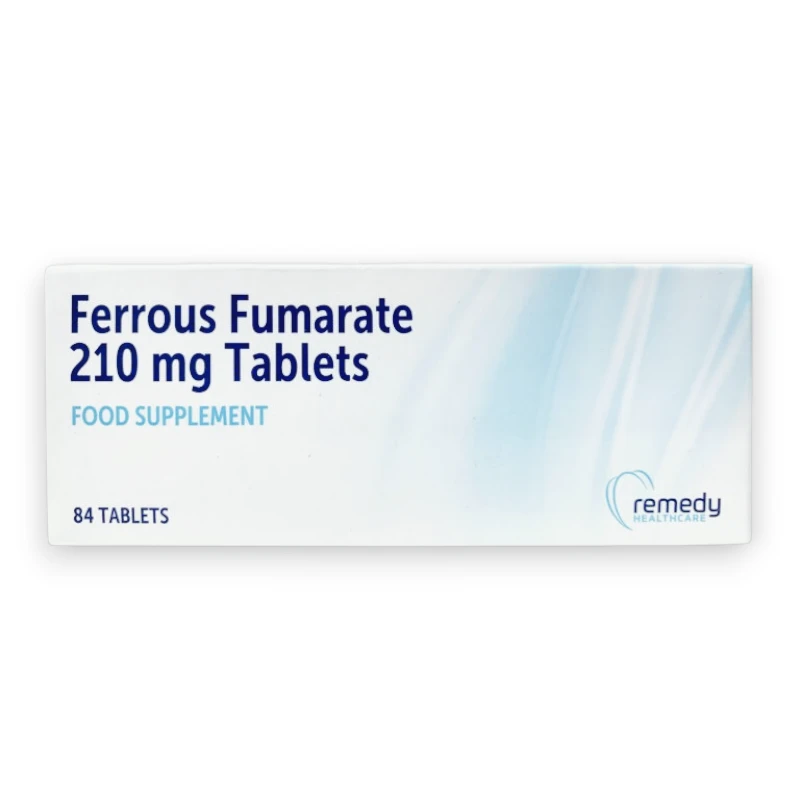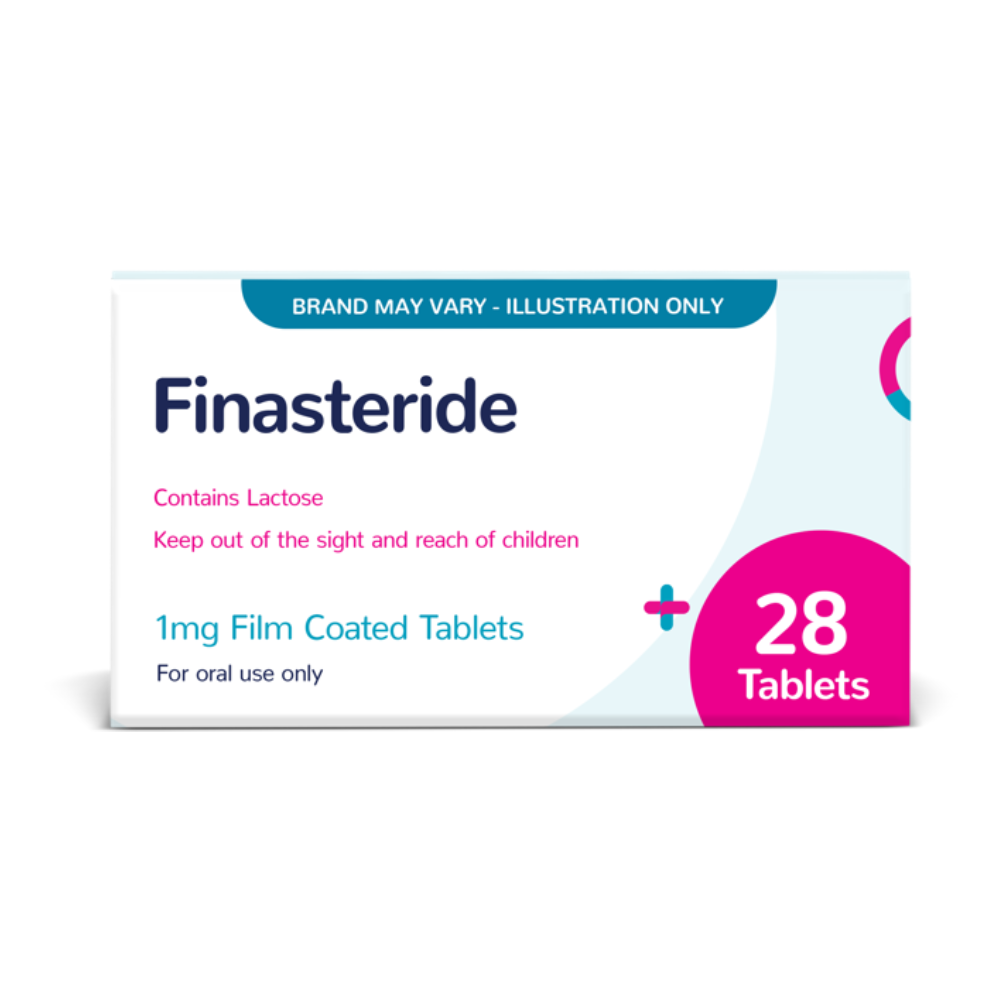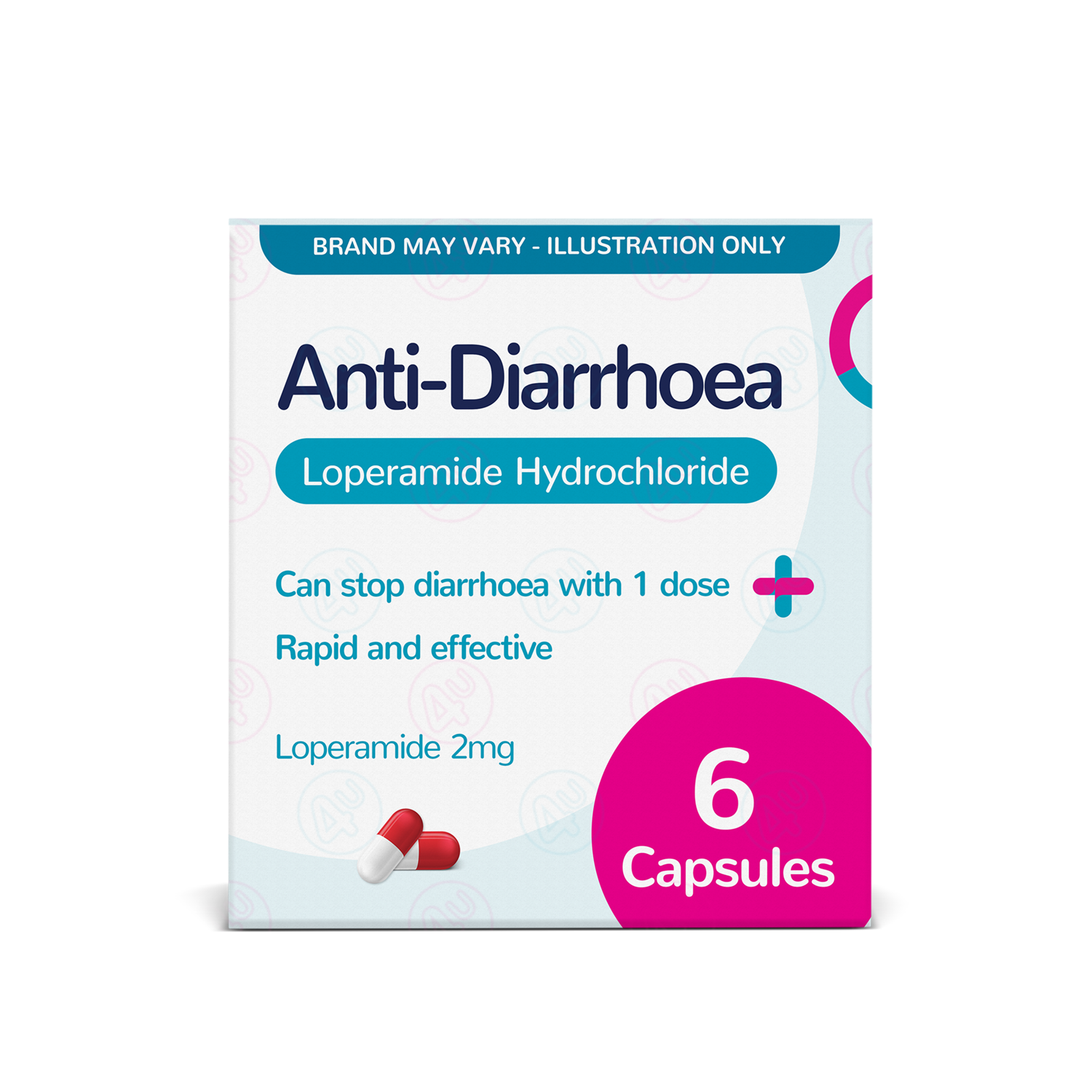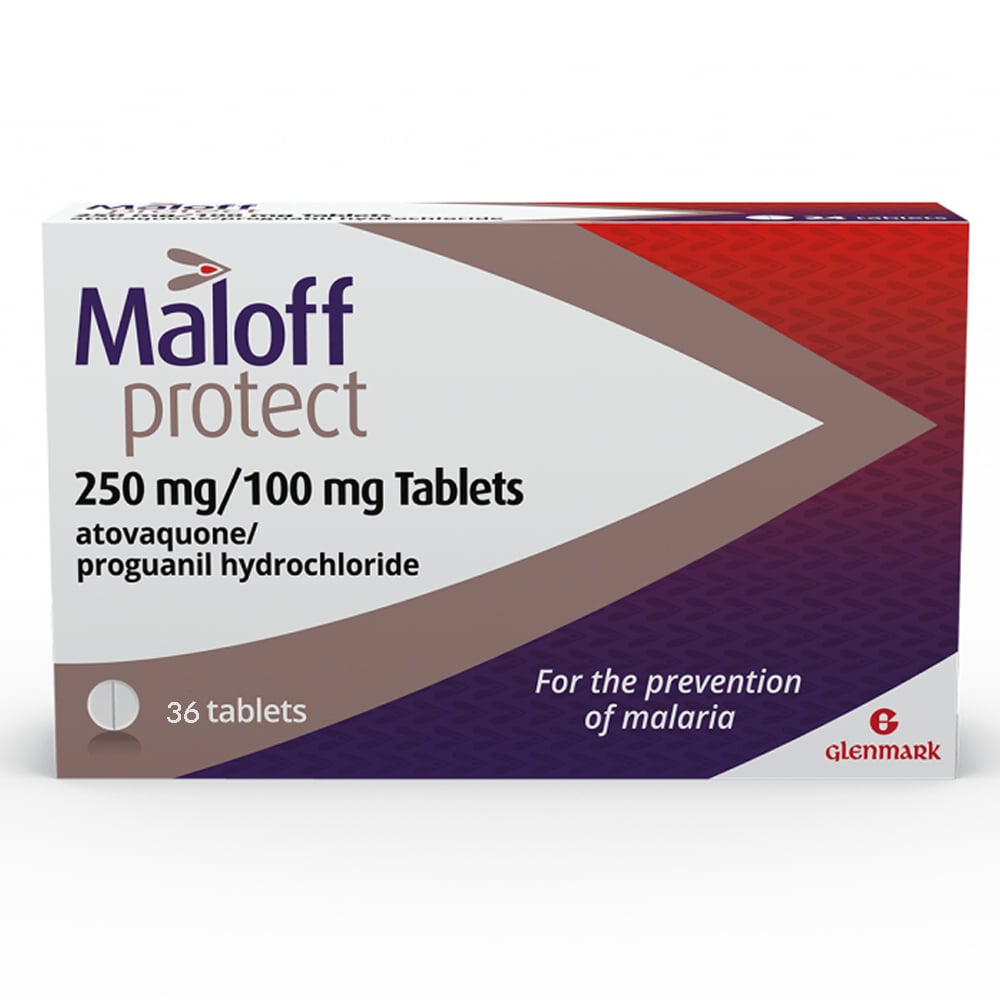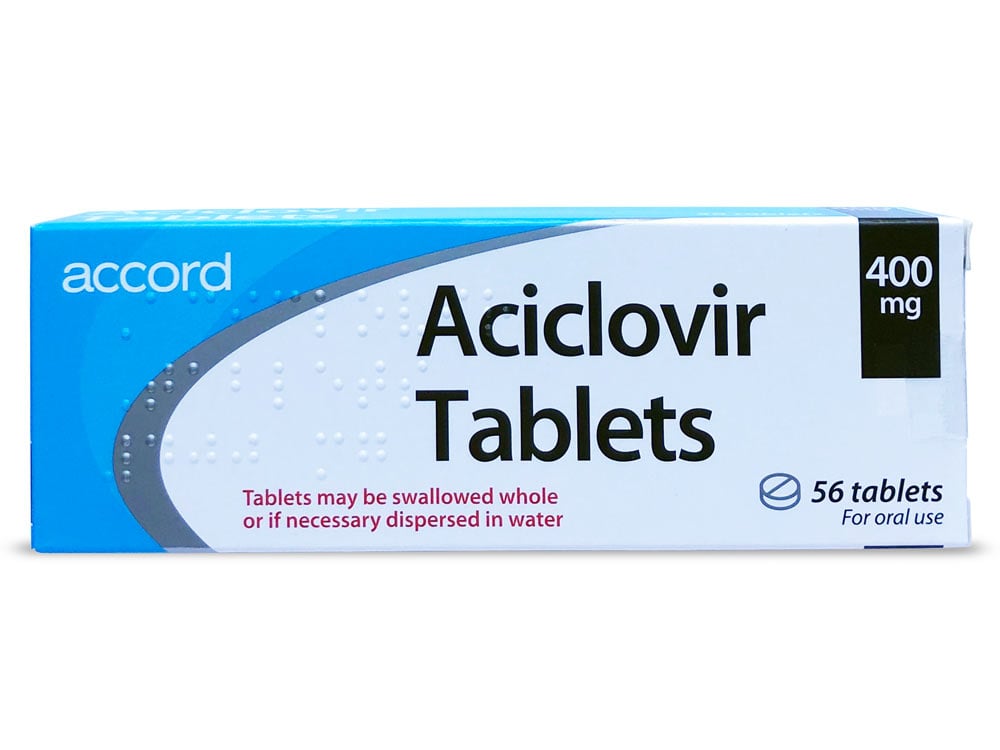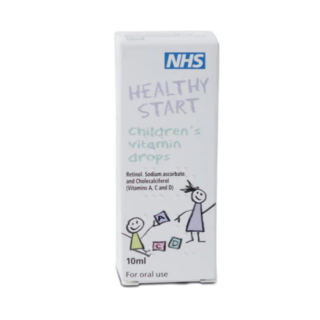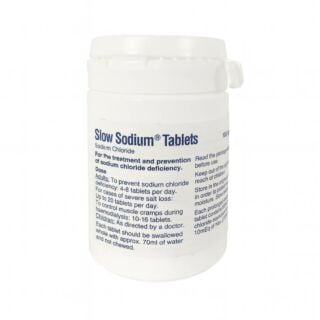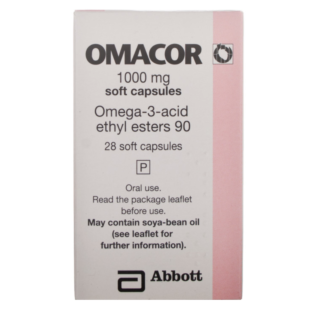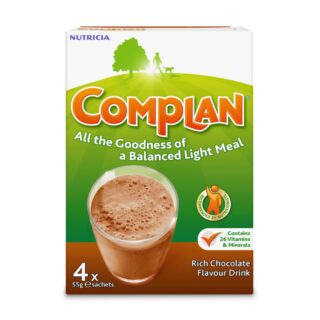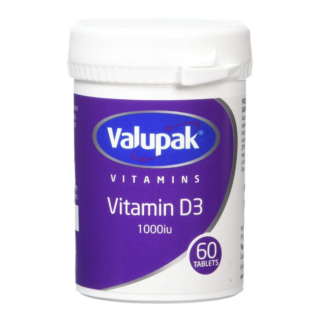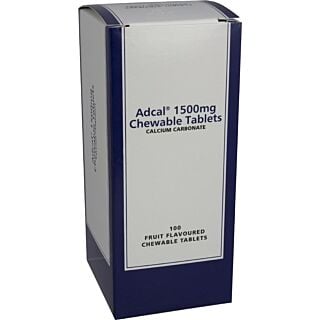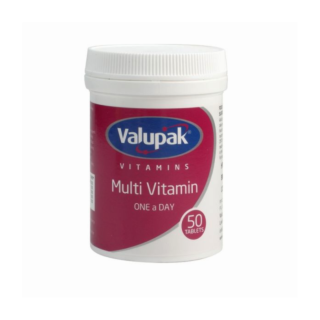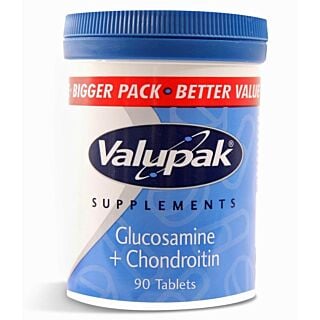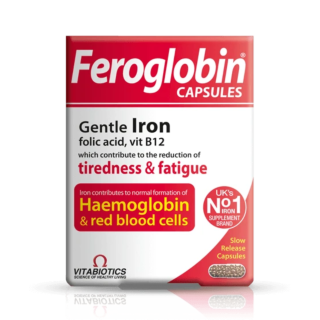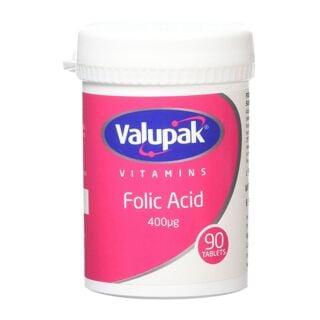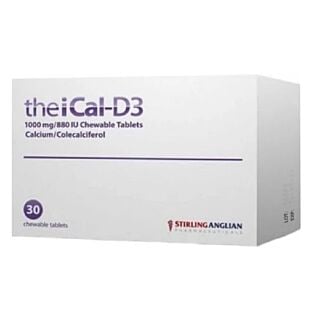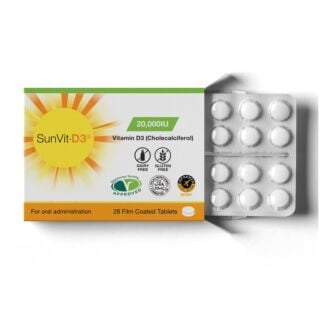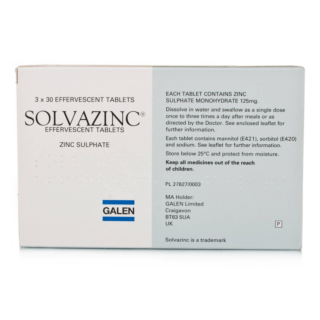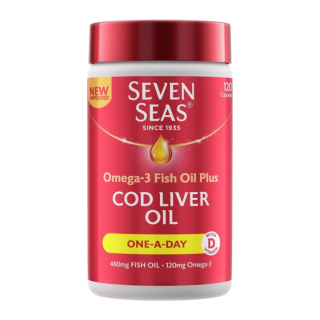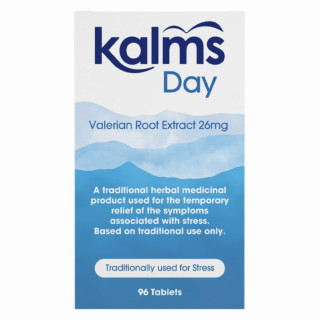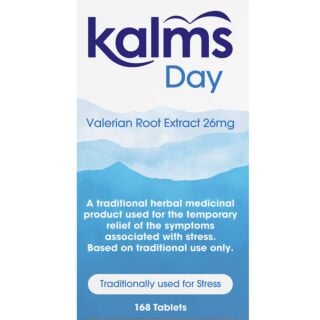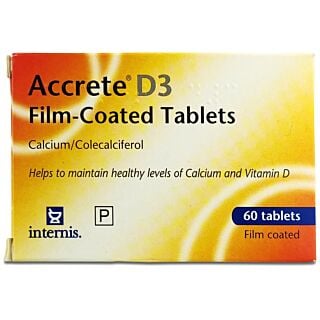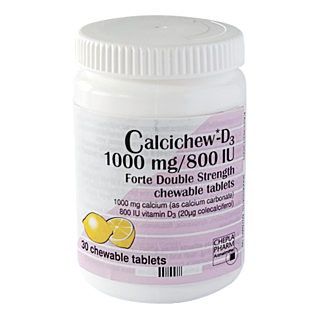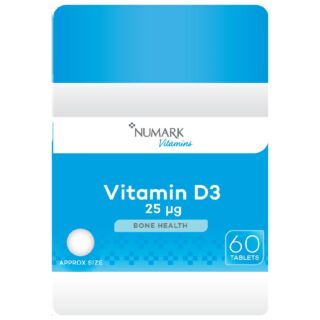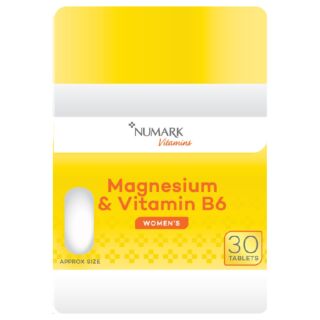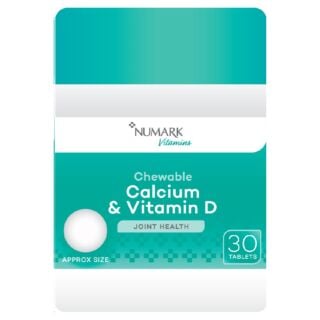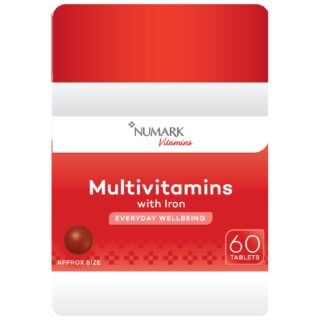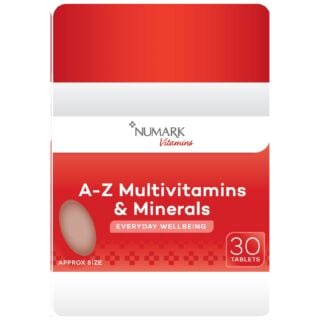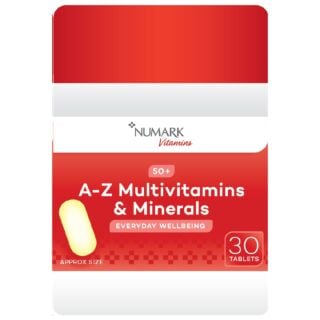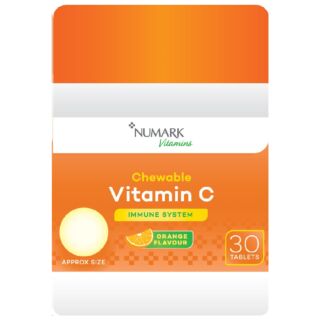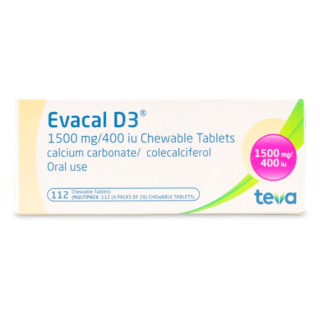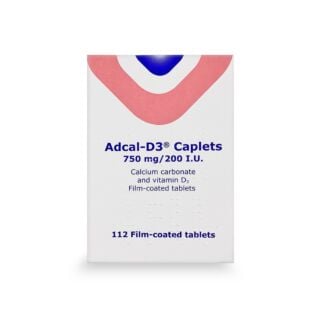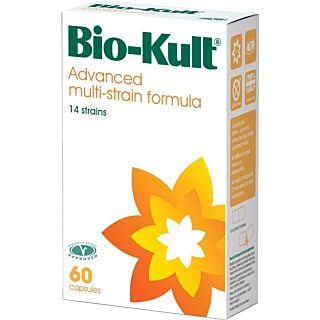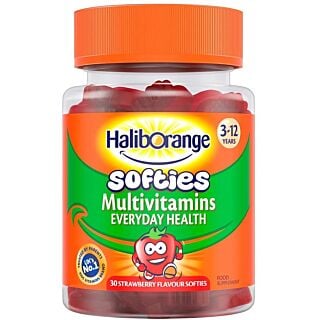Vitamins & Minerals
Vitamins and minerals are a type of micronutrient because they are needed in smaller amounts than macronutrients, like proteins, fats and carbohydrates.1–3 … Read More See less
While they may be needed in smaller quantities, vitamins and minerals are essential for your health.1–3 Without them, you are vulnerable to a variety of different health conditions.3
Most people should be able to get all the nutrients they need by eating a varied and balanced diet, although some people (e.g. pregnant people) may need to take supplements.1,3 Let’s find out why vitamins and minerals are so important for our health, the different types of vitamins and minerals and how to get enough of them.
Why do we need vitamins and minerals?
Vitamins and minerals often get lumped into the same category, but they are actually quite different.2
Vitamins are organic compounds found in different foods.2,4 They are considered to be an ‘essential’ part of your diet because your body either cannot make enough of them or doesn’t make them at all.2,4 Except for vitamin D, which is synthesised when it is exposed to sunlight.2,4 While each vitamin has its own unique function in your body, overall they can help:3,6–11
- Keep your bones strong
- Support your eyesight
- Keep your skin healthy
- Protect your cells from environmental damage
- Support your energy levels
Minerals are inorganic elements that are found in the earth (rocks, soil, water) as well as different foods and are essential to life.2,5 Minerals help:5,12–15
- Support your heart and brain function
- Keep your bones and muscles strong
- Synthesise your hormones
- Your body make red blood cells
- Turn the food you eat into energy
People who don’t get enough vitamins and minerals may be at greater risk of:3
- Heart problems
- Certain cancers
- Cognitive decline
- Immune disorders
- Poor bone health
- Teeth issues
Vitamins
The different vitamins are:4,6–11
- Vitamin A (retinol)
- Vitamin B1 (thiamin)
- Vitamin B2 (riboflavin)
- Vitamin B3 (niacin)
- Vitamin B5 (pantothenic acid)
- Vitamin B6 (pyridoxine)
- Vitamin B7 (biotin)
- Vitamin B9 (folate or folic acid)
- Vitamin B12 (cyanocobalamin)
- Vitamin C
- Vitamin D
- Vitamin E
- Vitamin K
There are 2 types of vitamins, fat-soluble and water-soluble.16
Fat-soluble
Fat-soluble vitamins (vitamins A, D, E and K) are mainly found in foods that are high in natural fat – such as dairy, eggs and oily fish.16 Every time you eat these foods your body stores them in your liver and body fat for future use, meaning you don’t need to get these vitamins every day for your body to have enough.16
Water-soluble
Water-soluble vitamins (B vitamins and vitamin C) are found in fruits and vegetables, grains and dairy.16 You need to consume these more often as your body can’t store them for future use and gets rid of any excess when you pass urine.16 These vitamins can be destroyed through heating, dissolving or exposure to air, so you should steam or grill these foods instead of boiling them (unless you’re cooking them in water to make soups or stews).16
Vitamin A
Vitamin A helps:6,16
- Your immune system work properly
- You see in dim light
- Keep your skin healthy
Good sources of vitamin A include:6,16
- Cheese
- Eggs
- Oily fish (salmon, sardines, trout, herring and mackerel)
- Fortified low-fat spreads
- Milk and yoghurt
- Liver (avoid liver if you are pregnant)
Or you can take multivitamin tablets or liquid with cod liver oil, or cod liver oil tablets with vitamin A.
B vitamins
Vitamin B1 (thiamin)
Vitamin B1 helps:7,16
- Your body release energy from food
- Keep your nervous system healthy
Good sources of vitamin B1 include: 7,16
- Some fresh fruits (bananas and oranges)
- Some vegetables (peas, asparagus and squash)
- Nuts
- Wholegrain breads
- Eggs
- Some fortified breakfast cereals
- Liver (avoid liver if you are pregnant)
Or you can take vitamin B1 tablets with co-enzyme Q10.
Vitamin B2 (riboflavin)
Vitamin B2 helps: 7,16
- Keep your skin, eyes and nervous system healthy
- Your body release energy from food
Good sources of vitamin B2 include: 7,16
- Milk
- Eggs
- Fortified breakfast cereals
- Mushrooms
- Plain yoghurt
Or you can use a vitamin B-complex liquid formula.
Vitamin B3 (niacin)
Vitamin B3 helps: 7,16
- Your body release energy from food
- Keep your nervous system and skin healthy
There are two forms of niacin: nicotinic acid and nicotinamide.7,16 Both can be found in: 7,16
- Meat
- Fish
- Wheat flour
- Eggs
- Milk
Or you can also use a vitamin B-complex liquid formula or multivitamin tablets.
Vitamin B5 (pantothenic acid)
Vitamin B5 helps your body release energy from the food you eat. 7,16
Good sources of vitamin B5 include: 7,16
- Chicken
- Beef
- Potatoes
- Liver and kidney (avoid liver if you are pregnant)
- Eggs
- Some vegetables (mushrooms, tomatoes and broccoli)
- Avocado
- Brown rice
- Wholemeal bread
Or you can also use a vitamin B-complex liquid formula or multivitamin tablets.
Vitamin B6 (pyridoxine)
Vitamin B6 helps: 7,16
- Your body use and store the energy from protein and carbohydrates in your food
- Your body make haemoglobin, which carries oxygen around your body via your red blood cells
Good sources of vitamin B6 include: 7,16
- Pork
- Poultry (chicken or turkey)
- Fish
- Peanuts
- Soya beans
- Oats
- Bananas
- Milk
- Some fortified breakfast cereals
- Potatoes
Or you can also use a vitamin B-complex liquid formula or multivitamin tablets.
Vitamin B7 (biotin)
Vitamin B7 is only needed in small amounts to help your body process (metabolise) fat.7,16 As the bacteria in your bowel make biotin naturally, it’s unclear whether you need to get additional biotin from your diet.7,16 However, biotin is found in a wide range of foods, though only at low levels, so it’s important to eat a healthy and varied diet.7,16
You can also use a vitamin B-complex liquid formula or multivitamin tablets.
Vitamin B9 (folate or folic acid)
Folate helps:7
- Your body form healthy red blood cells
- Reduce the risk of birth defects, such as spina bifida, in unborn babies
Good sources of folate include:7
- Broccoli
- Brussels sprouts
- Leafy green vegetables (cabbage, kale and spinach)
- Peas
- Chickpeas and kidney beans
- Liver (avoid liver if you are pregnant)
- Breakfast cereals fortified with folic acid (the manmade form of folate)
Or you can take folic acid tablets.
Vitamin B12 (cyanocobalamin)
Vitamin B12 helps:7,16
- Your body make red blood cells
- Keep your nervous system healthy
- Your body release energy from food
- Your body use folate
Good sources of vitamin B12 include:7,16
- Meat
- Fish (salmon and cod)
- Shellfish
- Milk
- Cheese
- Eggs
- Some fortified breakfast cereals
Vitamin B12 is not found naturally in plants and grains.7,16 So, if you follow a vegan diet, you should consider taking vitamin B12 tablets with iron and folic acid, B12 vitamin pills or B12 oral spray.7,16
Vitamin C
Vitamin C helps:8,16
- Protect and keep your cells healthy
- Your body maintain healthy connective tissue (skin, blood vessels, bones and cartilage)
- Wounds to heal
Good sources of vitamin C include:8,16
- Citrus fruit (oranges and grapefruit)
- Red and green peppers
- Potatoes
- Strawberries, blueberries, blackberries and blackcurrants
- Green leafy vegetables (broccoli and brussels sprouts)
Or you can take vitamin C tablets.
Vitamin D
Vitamin D helps regulate the amount of calcium and phosphate in your body to keep your bones, teeth and muscles healthy.9,16
Good sources of vitamin D include:9,16
- Oily fish (salmon, sardines, trout, herring and mackerel)
- Red meat
- Egg yolks
- Fortified cereals, soya products and spreads
- Liver and kidney (avoid liver if you're pregnant)
Or you can take vitamin D tablets, use vitamin D spray or vitamin D drops for babies.
Vitamin E
Vitamin E helps:10,16
- Your body maintain healthy skin and eyes
- Strengthen your immune system
Good sources of vitamin E include:10,16
- Plant oils (rapeseed, sunflower, soya, corn and olive oil)
- Nuts and seeds
- Cereals and cereal products
Or you can take vitamin E caplets, vitamin E capsules, vitamin E oil or multivitamin tablets.
Vitamin K
Vitamin K is a group of vitamins your body needs for:11,16
- Healthy bones
- Blood clotting, to help wounds heal
Good sources of vitamin K include:11,16
- Green leafy vegetables (broccoli and spinach)
- Plant oils
- Nuts and seeds
- Meat
- Dairy products
- Soya beans
- Cereal grains
Or you can take multivitamin tablets containing vitamin K.
Minerals
There are many minerals that your body needs to function, including:12–15,17
- Calcium
- Iodine
- Iron
- Beta-carotene
- Chromium
- Copper
- Magnesium
- Manganese
- Molybdenum
- Phosphorus
- Potassium
- Selenium
- Sodium chloride (salt)
- Zinc
However, this article will focus on calcium, iodine and iron.
Calcium
Your body needs calcium to: 12,17
- Keep your bones strong
- Keep your teeth healthy
- Make sure your blood clots normally
- Regulate your heartbeat and other muscle contractions
Good sources of calcium include:12,17
- Dairy products (milk and cheese)
- Green leafy vegetables (curly kale, okra, broccoli and cabbage)
- Fortified soya products
- Bread and anything else made with fortified flour
- Fish where you eat the bones (sardines and pilchards)
Or you can take D vitamin pills with calcium or calcium carbonate tablets.
Iodine
Iodine helps your body make thyroid hormones, which help keep your cells and metabolic rate (the speed at which chemical reactions take place in the body) healthy.13,17
Good sources of iodine include:13,17
- Fish
- Shellfish
- Eggs
- Dairy products (milk and cheese)
Or you can take iodine tablets.
Iron
Iron helps your body make red blood cells, which carry oxygen around your body.14,17
Good sources of iron include: 14,17
- Liver (avoid liver if you're pregnant)
- Red meat
- Beans (kidney beans, edamame beans, chickpeas)
- Nuts
- Dried fruit (dried apricots)
- Wholegrains (brown rice)
- Fortified breakfast cereals
- Dark-green leafy vegetables (watercress and curly kale)
Or you can take multivitamins with iron or iron with folic acid and vitamin B12.
Sources
- https://www.nhs.uk/conditions/vitamins-and-minerals/#:~:text=Vitamins%20and%20minerals%20are%20nutrients,need%20to%20take%20extra%20supplements.
- https://www.health.harvard.edu/staying-healthy/the-best-foods-for-vitamins-and-minerals
- https://www.bupa.co.uk/newsroom/ourviews/vitamins-minerals-benefits
- https://www.medicalnewstoday.com/articles/195878
- https://www.healthline.com/nutrition/foods-with-minerals
- https://www.nhs.uk/conditions/vitamins-and-minerals/vitamin-a/
- https://www.nhs.uk/conditions/vitamins-and-minerals/vitamin-b/
- https://www.nhs.uk/conditions/vitamins-and-minerals/vitamin-c/
- https://www.nhs.uk/conditions/vitamins-and-minerals/vitamin-d/
- https://www.nhs.uk/conditions/vitamins-and-minerals/vitamin-e/
- https://www.nhs.uk/conditions/vitamins-and-minerals/vitamin-k/
- https://www.nhs.uk/conditions/vitamins-and-minerals/calcium/
- https://www.nhs.uk/conditions/vitamins-and-minerals/iodine/
- https://www.nhs.uk/conditions/vitamins-and-minerals/iron/
- https://www.nhs.uk/conditions/vitamins-and-minerals/others/
- https://www.nhsinform.scot/healthy-living/food-and-nutrition/eating-well/vitamins-and-minerals/#vitamins
- https://www.nhsinform.scot/healthy-living/food-and-nutrition/eating-well/vitamins-and-minerals/#minerals

Free delivery when you spend over £30

100% discreet delivery for every item ordered

Fully regulated UK pharmacy
Are gummy vitamins better for children?
It depends on your child’s preferences.
Gummy vitamins are easier for children to take due to the soft texture and the range of flavours available, and you can even disguise them as a delicious treat to convince your child to enjoy an essential source of goodness.
However, sometimes gummy vitamins have a lower vitamin count and may contain a higher amount of sugar compared to a chewable variety, but chewable vitamins may have a chalky texture that your child might not like.
Are gummy vitamins halal?
Gummy vitamins are a popular choice, especially for those who struggle to take tablets, like small children.
However, most gummy vitamins are usually made with the animal product gelatine, so you’ll need to look for a vegetarian alternative or a halal-certified product.
But these might still contain alcohol, so always read the label carefully to be safe.
Can adults take children’s vitamins?
Children and adults have different dietary needs, so it’s best not to take children’s vitamins during adulthood unless advised by your doctor.
Taking them probably won’t cause you any harm, but you may find that you’ll be lacking the essential vitamins you need for your age.
However, the dosage is typically lower in children’s vitamins compared to an adult variety, and they’re easier to take, too.
If you’re concerned about experiencing side effects with stronger vitamins or struggle to take them, speak to your doctor to see if they’d be right for you.
Can vitamins interfere with sleep?
If you’re taking vitamin D too close to bedtime, it may affect your sleep quality, as high amounts of vitamin D in the body may interfere with the production of melatonin.
However, other studies suggest that having a low amount of vitamin D in your body may lead to a higher amount of disturbances, and reduced sleep quality and duration.
It’s probably easier to take your vitamins along with your morning meal, but until there is concrete evidence, experiment and find a routine that works best for you.
Can you overdose on vitamins and supplements?
Yes, you can overdose on vitamins and supplements, so it’s important to take care with the supplements you’re taking.
You should not take more than one multivitamin a day.
These products will often contain the same vitamins and this can lead to you accidentally taking too much.
If you’re taking a multivitamin, you should also be very careful if you’re taking any separate singular supplements, such as a vitamin d supplement — you could end up taking too much if these overlap.
You can find out which vitamins and minerals are in your supplements by checking the nutritional values table on the packaging, so make sure you’re never doubling up on any nutrients.
If you have any concerns, make sure to speak to your doctor or pharmacist, just in case.
How do I know which vitamins are vegan?
Look at the label first - you want to get a product that is 100% free from any animal product or animal-derived ingredients.
Most vitamins will boldly state whether they’re suitable for vegetarians or vegans, or have the official green logo on the container to provide clarity to shoppers.
Certain supplements, like omega 3, are harder to find in a vegan alternative.
Who should take B vitamins?
There are 8 B vitamins in total, but the ones you might recognise the most are biotin, folate (folic acid) and vitamin B12.
You can also take a vitamin B complex which includes all of the recommended doses of all 8 in a single supplement.
Vitamin B impacts your energy levels, brain function, metabolism, and is especially important for pregnant and breastfeeding women as it aids fetal development and can reduce the risk of birth defects.
Taking vitamin B is important for older men, too, as it can increase testosterone levels which are thought to naturally decrease with age.



